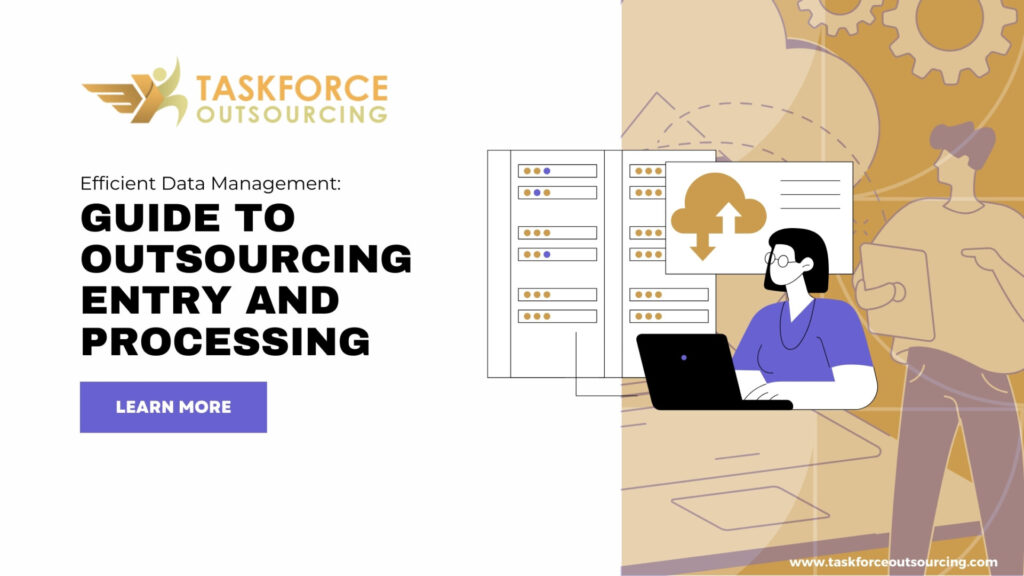Outsourcing data entry and processing has become a smart strategic move for businesses trying to focus on their core competencies, save expenses, and simplify operations in the fast-paced corporate world of today. Should you be thinking about hiring someone else to handle these duties, this article will provide you the knowledge you need to make wise choices.
Contents
Why Outsource Data Entry and Data Processing?
Cost-effectiveness via Outsourcing
Outsourcing offers businesses tremendous financial benefits by drastically reducing operational costs. Businesses can accomplish the same level of work at a fraction of the cost by working with firms in nations with cheaper labour expenses.
Concentrate on Your Main Business Tasks
Your internal employees can focus on critical projects that boost business development by assigning unnecessary duties to outsourcing partners, such as data processing and entry. By assigning unnecessary responsibilities to outsourcing partners, such as data entry and processing, you free up your own staff to concentrate on strategic projects that are critical to accelerating corporate expansion. This method makes the best use of available resources, boosts output and efficiency, encourages creativity, raises staff morale, and facilitates more effective budget allocation.
Availability of Knowledge and Innovative Technologies
There are several benefits to outsourcing data entry and processing to specialist companies in terms of best practices, technology, and expertise. These companies offer excellent accuracy and efficiency, allowing companies to efficiently handle data while concentrating on their primary skills. Businesses may boost decision-making, expand operations, and achieve better operational performance by taking advantage of outsourcing partners' skills.
Scalability
Incomparable flexibility in scaling operations up or down in response to business needs is offered by outsourcing. Due to their flexibility, businesses are able to effectively manage expenses, react quickly to market needs, and avoid the administrative and morale problems that come with recruiting, onboarding, and firing employees. Businesses may sustain operational efficiency and concentrate on strategic growth efforts by utilising the capabilities of outsourcing partners, which will ultimately boost their competitiveness and success in the market.
Key Considerations When Outsourcing

Determine What You Need
A successful collaboration depends on you thoroughly defining your needs before contacting possible outsourcing partners. You can discover a partner who can meet your demands if you have clear specifications about the kind of data, volume, accuracy, turnaround times, security, communication, workflow, and success metrics.
Choose the Right Partner
To select a trustworthy and efficient partner, it is essential to assess possible outsourcing partners according to their track record, experience, and reputation. Seek out companies who have a track record of success in your sector; they will be better able to comprehend your unique requirements and provide top-notch services. You can guarantee a fruitful outsourcing agreement that advances your corporate goals and improves operational effectiveness by carrying out extensive due diligence.
Security and Confidentiality of Data
Protecting confidential information requires making sure your outsourcing partner adheres to by applicable legislation and strict data security measures. Businesses can reduce risks and make sure that their data is handled safely and in accordance with all applicable laws by putting in place strong security measures, carrying out frequent audits, training staff, and putting particular contractual clauses in place. This strategy not only shields the company from possible legal and financial ramifications but also fosters stakeholder and customer trust.
Quality Control
For the data being processed to remain reliable and intact, strong quality control procedures must be established. Organisations can maintain high standards of data quality and reduce the risks associated with errors or inconsistencies by putting in place demanding validation, frequent audits, feedback loops, and corrective measures.
Communication
Effective communication is essential to successful outsourcing partnerships—it's not just a polite phrase. You can maximise the value from the outsourcing relationship by fostering alignment, transparency, trust, and collaboration through the establishment of clear lines of communication and regular reporting methods.
The Best Methods for Successful Outsourcing
Start small
To test the waters and establish confidence with the outsourcing partner, start small with a modest job.
Allocate Funds on Training
Provide the outsourcing team the information they need to understand your business's procedures and data handling needs.
Strive in Communicating Frequently
Problems can be resolved more rapidly when there are regular updates and open sources of communication.
Take advantage of Technology
Streamline processes and boost output by utilising project management and collaborative technologies.
Define Your Expectations
Make sure you are clear about the quality, deadlines, and deliverables you expect.
Conclusion
Outsourcing data entry and data processing can be a game-changer for businesses looking to streamline operations, reduce costs, and focus on core activities. By leveraging external expertise, companies can ensure data accuracy, enhance productivity, and gain access to the latest technology and best practices.
As you consider outsourcing, it’s crucial to choose a reliable partner who understands your specific needs and can offer tailored solutions. With the right approach, outsourcing can not only meet your immediate data processing requirements but also contribute to long-term business growth and success.
Frequently Asked Questions (FAQs)
A: Data entry outsourcing involves hiring external service providers to manage and input data into your systems, allowing your team to focus on core business activities.
A: Benefits include cost savings, increased efficiency, access to skilled professionals, scalability, and the ability to focus on core business activities.
A: Common data entry services include data transcription, data mining, data purification, processing online forms, managing customer information, entering picture data, handling invoices, recording survey results, and processing other data sources.
A: Establish clear guidelines, provide thorough training, implement regular quality checks, and maintain open communication with the outsourcing team to ensure high standards.
A: Strict security measures, including encryption, access controls, non-disclosure agreements (NDAs), and adherence to data protection laws are put in place by outsourcing companies.


